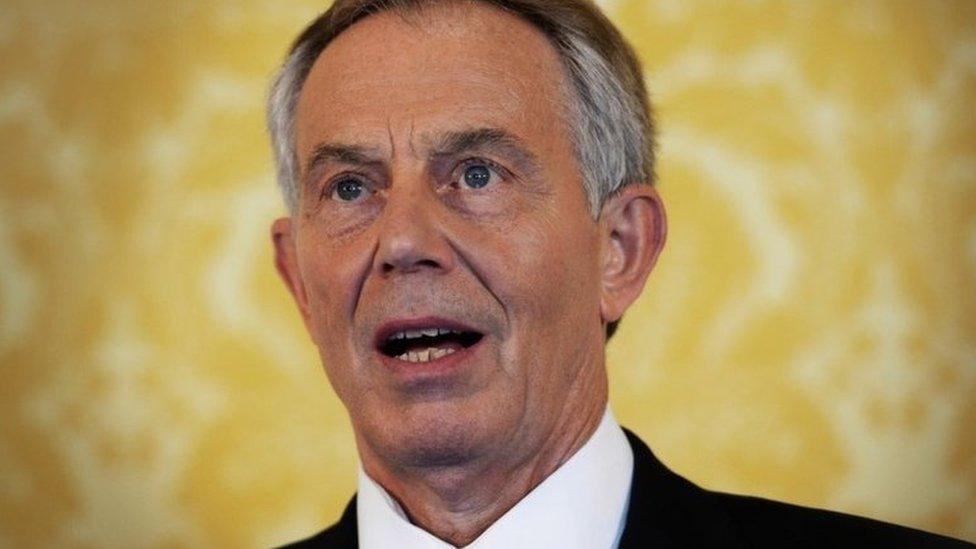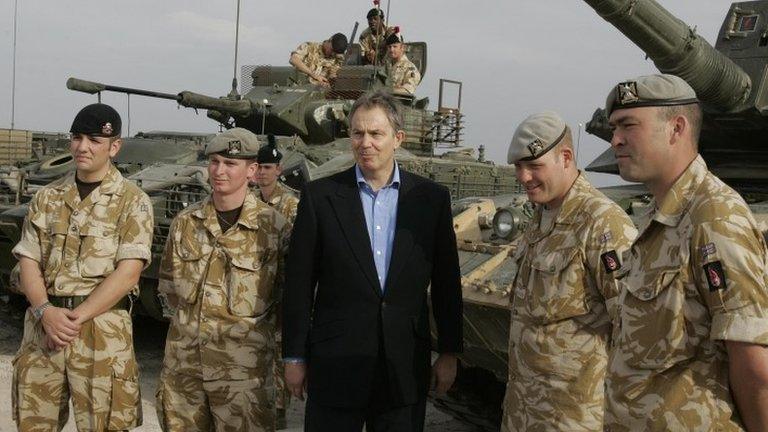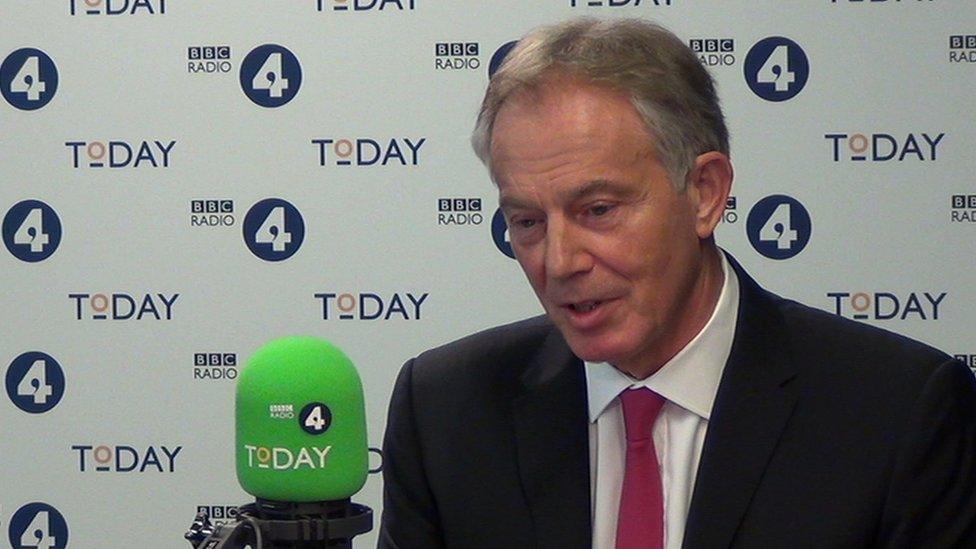MPs reject Tony Blair Iraq investigation
- Published

MPs have rejected a call for an investigation into Tony Blair's role in the build-up to the Iraq war.
The SNP's motion said the former Labour prime minister had not given Parliament correct information on his dealings with US President George W Bush.
MP Alex Salmond said the push towards war in 2003 had been "very much a personal campaign" by Mr Blair.
But Labour's shadow foreign office minister Fabian Hamilton warned against making him a "scapegoat".
The current Conservative government also said there was no need for an investigation.
The US-led invasion of Iraq began in March 2003 and the UK, which lost 179 military personnel in the conflict, ended its combat role in 2009.
MPs rejected the SNP's House of Commons motion, calling for an investigation into Mr Blair's pre-Iraq war role by the Justice Committee, by 439 to 70 - a margin of 369 votes.
'Grievously misled'
Mr Salmond, a former Scottish First Minister, said it was a "question of parliamentary accountability" and "that an examination of statements made to Parliament and public, against the facts as we now know them, would be a valuable additional sanction and tool in restraining future prime ministers from any such course of events".
Mr Blair had "grievously misled" the public "into that disastrous conflict", he added.
The Iraq Inquiry, led by Sir John Chilcot and published in July, found the former prime minister had overstated the threat posed by Iraqi leader Saddam Hussein, had sent ill-prepared troops into battle and had "wholly inadequate" plans for the aftermath.
The SNP said the inquiry's release of a note from Mr Blair to US President George W Bush in 2002, saying "I'll be with you, whatever", proved that he had misled MPs about his intentions.
But, during the three-hour Commons debate, ex-Conservative Chancellor Ken Clarke suggested a focus on Mr Blair risked relegating the issue of ensuring that such a "catastrophic foreign policy decision" was not repeated.
He told Mr Salmond: "As you are aware, I agree with you about your descriptions of the catastrophic nature of the invasion of Iraq and I agree with you that the former prime minister has a lot to answer for and no doubt will continue to do so although he was cleared by Chilcot of deliberate misbehaviour."
'Collective failure'
But, for the government, Cabinet Office minister Chris Skidmore said there was "no merit" in further inquiries into the Iraq war, and the Chilcot report contained "nothing" which pointed to "deliberate deceit" of Parliament by Mr Blair.
He added: "But there were clearly occasions where more information or better information could have been presented.
"As for how people should account for themselves, it is for them to read the report and explain why they did what they did."
Labour's Mr Hamilton said: "There are many serious lessons to learn from the Chilcot report... but in terms of learning those lessons, we will do ourselves and future governments no favours if we spend even more time in this House and in the committee rooms examining contentions that the Chilcot report and four other inquiries - at exhaustive length - have already found to be incorrect.
"Nor will any of us benefit if we continue to try and turn a collective institutional and international failure in Iraq into an attempt to pillory or scapegoat one individual."
There had been doubts over the attitude of Labour's frontbench to the motion with calls for leader Jeremy Corbyn - a prominent opponent of the war - to order the party's MPs to vote against.
After the Chilcot report was published in July, Mr Blair, who led Labour to three general election victories, apologised for intelligence assessments having been "wrong".
But he defended the decision to go to war, saying that "there were no lies. Parliament and cabinet were not misled. There was no secret commitment to war. Intelligence was not falsified and the decision was made in good faith".
- Published6 July 2016

- Published7 July 2016
